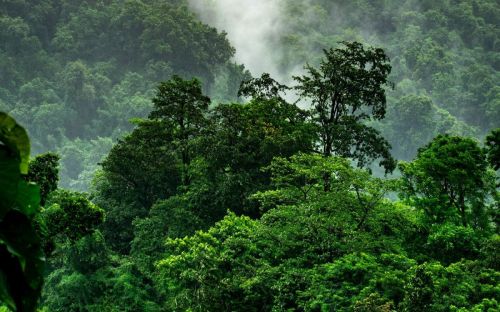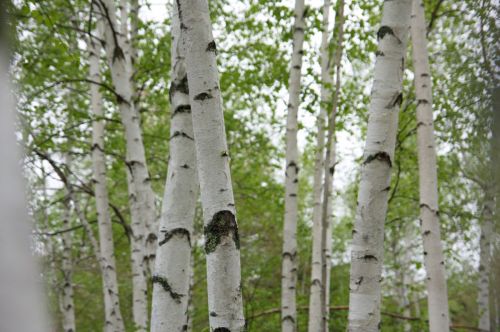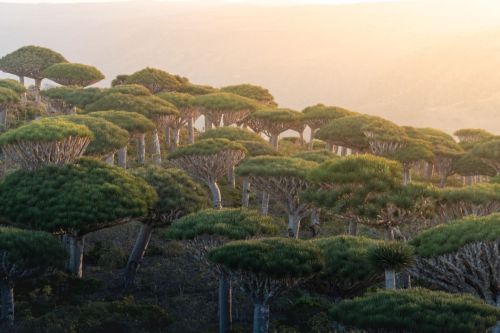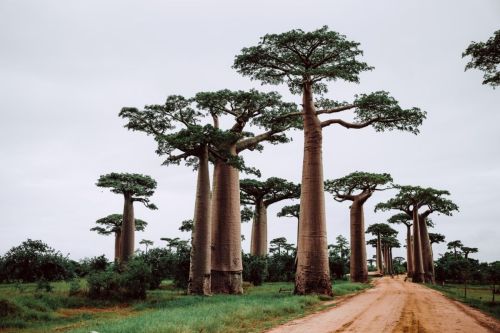It is the most characteristic symbol of Christmas and its indispensable element, without which it is difficult to imagine the holidays. Green, fragrant, decorated with colorful decorations, under which Christmas gifts are placed. The custom of decorating a Christmas tree comes from folk tradition and belief in the unique properties of green trees, symbolizing life, rebirth, and hope.
Most often, these are natural trees, but there are also artificial ones.
There are speculations that the history of green, decorated trees dates back to ancient times. In ancient Rome, deciduous trees were decorated with ivy and laurel to propitiate the god of harvest during rituals. When celebrating the winter solstice, the Egyptians brought green leaves of date palms to their homes as a symbol of the victory of life over death. Among the Celts, mistletoe played this role. Living holly twigs were a symbol of eternal life for the druids (ancient Celtic priests), and in Norse mythology, they meant the rebirth of Balder - the god of light and beauty.
Nativity scenes became popular in temples and homes of wealthy people.
In ancient Poland, on Christmas Eve, every apartment was decorated with Christmas decorations. They were trees, but not whole trees, but only cut tops of fir, spruce, or pine, hung from the ceiling above each door and also by the windows. They were decorated with colorful tissue paper, flowers, apples, and ribbons. Baked gingerbread and walnuts painted gold or silver were also hung on them. Various decorations were also woven from straw, such as decorative spiders to which tiny candles were attached. It was believed that ladybugs had magical powers and would protect the house from diseases and misfortunes. The dried ornament was never thrown away, crushed twigs were added to animal food or buried in the field, believing that it would bring a harvest.
This mention appears in the biography of St. Boniface, a monk who converted Germanic peoples. During the Christmas mass, the monk cut down a sacred pagan oak tree, which fell and destroyed all the trees growing around it, leaving only one small pine tree.
Luther distanced himself from the Catholic nativity scene, establishing the Christmas tree as a sign of Christmas. He recommended spending the holidays in the privacy of your home.
They were decorated with decorations made of paper and apples, which was a reference to the tree of paradise.
The tree became the equivalent of the biblical paradise "tree of the knowledge of good and evil", so small red apples were placed on it, reminding us of original sin.
It was also a reference to sin and the fall of man.
In the Eastern Church, especially in the Slavic circle, the Christmas tree was adopted as a sign of the Nativity of Christ, and spruce branches are usually the background of an icon depicting the Nativity of the Lord, which is the equivalent of the Catholic nativity scene.
The apple referred to the fruit of paradise, bells symbolized good news, angels - God's protection, chains - enslavement to sin, and on the other hand, it was believed that they cemented family ties. However, the most important thing was the Star of Bethlehem, which was placed on the top of the tree. It was a symbol of light that led lost wanderers to their homes, showing them the right path.
In Christian religious symbolism, light is Christ, i.e. light for the pagans. Folk beliefs, however, assumed that the Christmas tree light prevented evil forces from entering the house and turned away people's unfriendly glances.
Almost no one makes their own decorations anymore because they have been replaced by mass-produced trinkets.
The baubles are blown from thin glass. They are often hand-painted and silver-plated on the inside. The beginnings of bauble production date back to 1847 and the first ones were made in Lauscha, Germany, by Hans Greiner. Legend says that he started making glass-blown cups because he could not afford to buy traditional decorations at that time.
Traditions vary, in other countries, if there are gifts, they are given on Christmas Day.
John Paul II introducing the tradition of the Christmas tree in St. Peter’s Square emphasized that it is a symbol of the tree of life, the one mentioned in the Book of Genesis, and because it is decorated with lamps, it is a symbol of life and light. The Christmas tree unites people regardless of age. The appearance of the Christmas tree in St. Peter's Square and the Holy Father's palace in the Vatican caused an avalanche reaction. Beautiful Christmas trees appeared in many Italian homes, and Christmas trees replaced other Christmas decorations on the streets and city squares.








